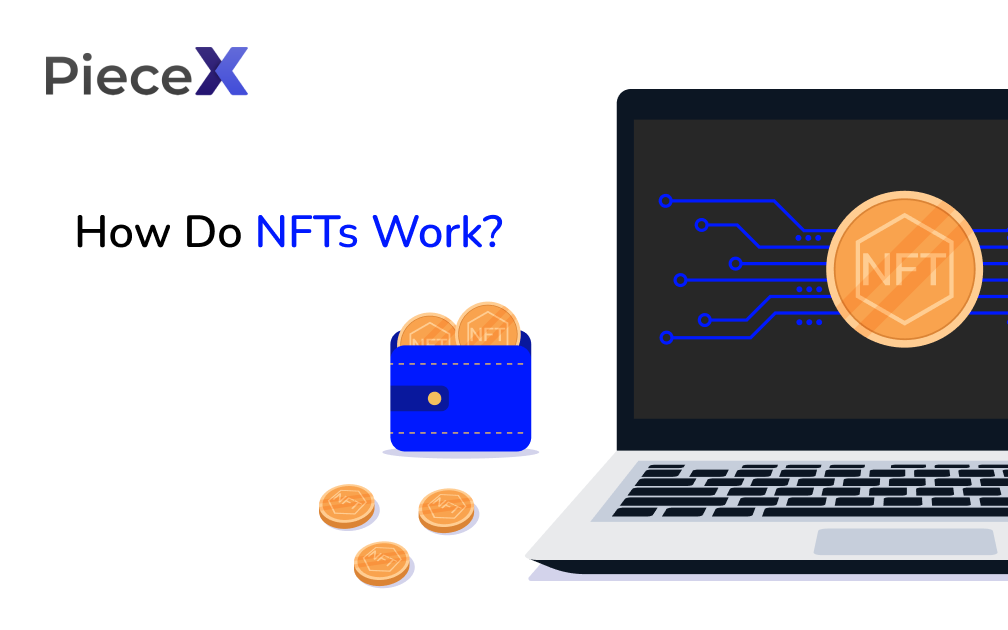
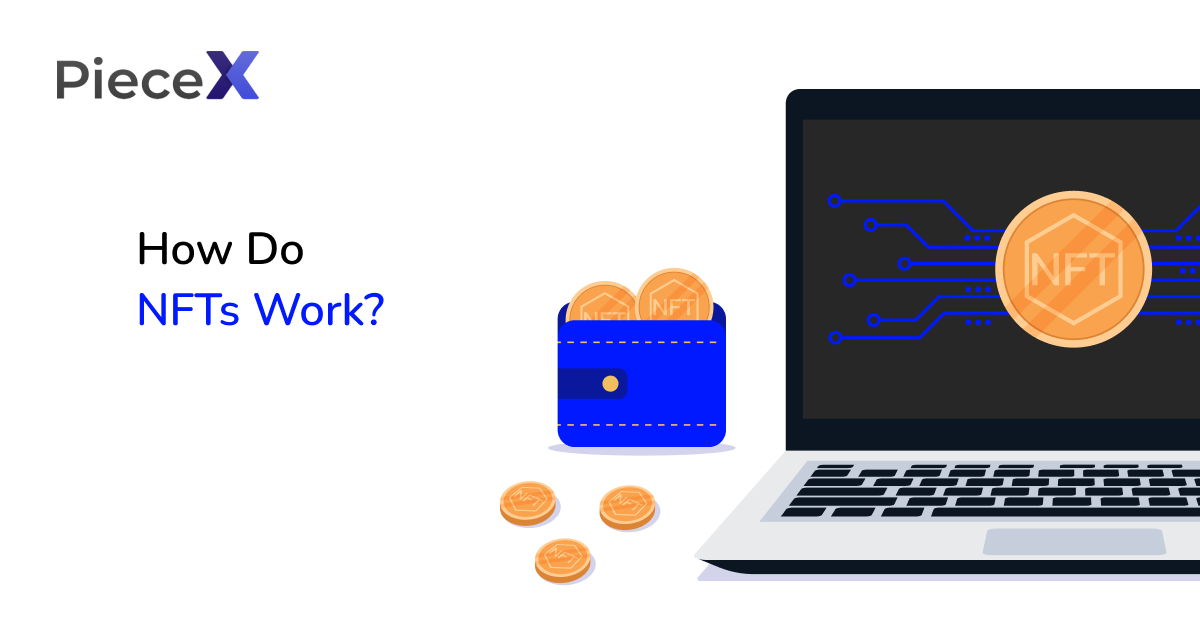
Non-fungible tokens, or NFTs, have been making headlines lately, with digital art selling for millions of dollars and even tweets being sold as unique digital assets.
But what exactly are NFTs and how do they work? In this article, we’ll explain the basics of NFTs, their benefits, criticisms, and limitations and all together how NFTs work.
What are NFTs?
In simple terms, NFTs are digital assets that represent ownership of unique items or pieces of content, such as art, music, videos, and even tweets. Unlike cryptocurrencies like Bitcoin or Ethereum, which are fungible and interchangeable, NFTs are non-fungible, meaning each one is unique and cannot be exchanged for another identical token.
NFTs are created using blockchain technology, the same technology that underlies cryptocurrencies. Each NFT is a unique token that is verified and tracked on a public ledger, or blockchain, which records all transactions involving the token. This ensures that each NFT is one-of-a-kind and cannot be replicated or counterfeited.
Examples of NFTs include digital artwork, such as the $69 million sale of a digital collage by the artist Beeple, as well as virtual real estate, music, and even tweets. Essentially, any digital content that can be owned and sold can potentially be turned into an NFT.
How NFTs Work
So, how do NFTs work? The process of creating and owning an NFT involves several steps:
Create the digital asset: The first step in creating an NFT is to create the digital asset, such as a piece of art, music, or video. This asset must be unique and cannot be replicated or duplicated.
Mint the NFT: Once the digital asset is created, it can be turned into an NFT by “minting” it on a blockchain. This involves creating a unique token that represents ownership of the digital asset. Minting an NFT typically involves paying a fee, which is usually paid in cryptocurrency.
Verify ownership: Once the NFT is minted, it is verified and recorded on the blockchain, which serves as a public ledger that records all transactions involving the token. This ensures that the NFT is unique and cannot be replicated or counterfeited.
Sell or trade the NFT: Once the NFT is minted and verified, it can be sold or traded on a marketplace or exchanged for other cryptocurrencies. The price of an NFT is determined by the market demand for the digital asset it represents, as well as its perceived value and rarity.
Smart contracts are also an important aspect of NFTs. Smart contracts are self-executing contracts that are programmed to automatically enforce the terms of the contract. In the case of NFTs, smart contracts can be used to automate the sale, transfer, and ownership of the digital asset represented by the NFT. For example, a smart contract could be programmed to automatically transfer ownership of an NFT to a buyer once they have paid the agreed-upon price.
Benefits of NFTs
NFTs offer several benefits over traditional ownership of digital assets, including:
Ownership and authenticity: NFTs provide a way to prove ownership and authenticity of digital assets. With traditional digital assets, it can be difficult to prove ownership or authenticity, as anyone can copy or replicate the asset. With NFTs, ownership and authenticity are recorded on a public blockchain, providing a way to verify ownership and authenticity.
Monetization of digital assets: NFTs provide a way to monetize digital assets that were previously difficult to monetize, such as digital art, music, and videos. By turning these assets into NFTs, creators can sell and trade them as unique digital assets, potentially earning significant amounts of money.
Use cases: NFTs have potential use cases beyond digital art and collectibles. For example, they could be used to verify ownership of virtual real estate in online games, or to represent ownership of tickets to concerts or other events.
Criticisms and Limitations of NFTs
While NFTs offer several benefits, they also have some limitations and criticisms, including:
Environmental concerns: The process of minting NFTs and recording them on a blockchain requires a significant amount of energy, which has raised concerns about the environmental impact of NFTs. Critics argue that the energy consumption associated with NFTs is unsustainable and contributes to climate change.
Lack of regulation: NFTs are largely unregulated, which has led to concerns about fraud and scams. There have been reports of fake NFTs being sold on marketplaces, and some artists have criticized the lack of transparency and accountability in the NFT market.
Volatility and unpredictability of NFT market: The market for NFTs is still relatively new and volatile, with prices fluctuating rapidly and unpredictably. This can make it difficult for artists and creators to determine the true value of their digital assets, and for buyers to assess the potential long-term value of an NFT.
NFT Marketplaces
NFT marketplaces provide a platform for buyers and sellers to trade NFTs, and they have become an increasingly popular way to buy and sell digital assets.
One such marketplace is available on PieceX, which not only provides a platform for creators to sell their NFTs, but also offers source code for building a customizable NFT marketplace. PieceX’s NFT marketplace source code allows developers to quickly and easily create their own NFT marketplace, tailored to their specific needs and preferences.
This can be especially useful for businesses and organizations that want to take advantage of the benefits of NFTs but may not have the technical expertise to build their own marketplace from scratch. With PieceX’s NFT marketplace source code, anyone can participate in the growing market for NFTs.
Conclusion
NFTs have the potential to revolutionize the way we think about ownership of digital assets, providing a way to prove ownership and authenticity and monetize previously difficult-to-monetize assets.
However, they also have limitations and criticisms, including concerns about their environmental impact, lack of regulation, and volatility. As the market for NFTs continues to develop and evolve, it will be important to address these concerns and ensure that NFTs are a sustainable and equitable way to own and trade digital assets.
For more articles like this, check out our Knowledgebase Blog!
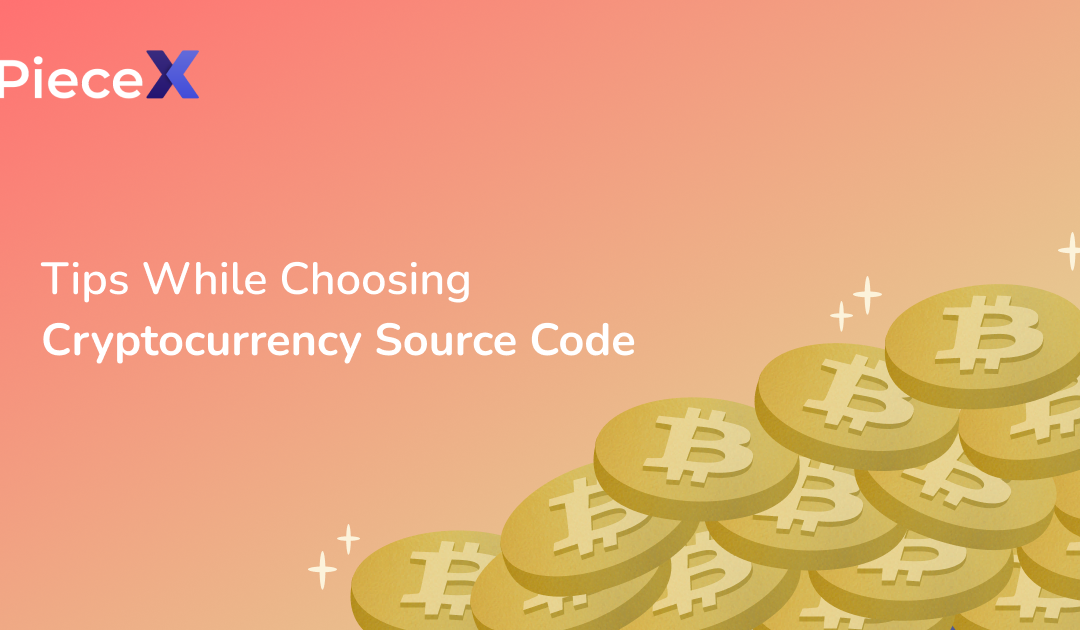
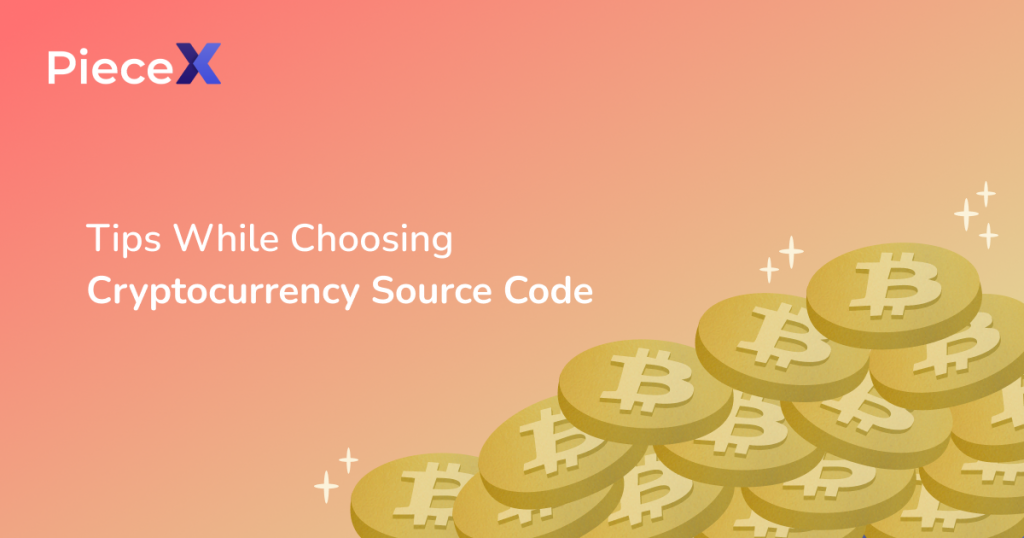
The PieceX Marketplace has a multitude of different categories in its huge library of software source code. Among those categories is Cryptocurrency.
Cryptocurrency code is currently massively in demand and the industry is heavily saturated. Every investor, company, or even hobbyist needs the right cryptocurrency software for them to be able to gauge the market, engage in trading, build their strategy, and more.
Though navigating the PieceX Marketplace is quite simple, knowing which cryptocurrency software you need may be relatively tricky, and that’s why the PieceX Team decided to help by giving tips on how to choose the perfect cryptocurrency software for your venture.
Determine Your Need
Before you hop in to choosing the cryptocurrency software you are buying, it is important to determine exactly what you are doing. Are you an investor looking to buy an app to modify for your crypto investment needs? Or are you a developer trying to build your very own cryptocurrency software?
Finding out exactly what you are looking to do will very much determine what kind of cryptocurrency software you need.
Let’s take an example. If you are trying to get into crypto and you are at very early stages of doing that, the first thing you’ll need to do is to build a strategy. Building a strategy for cryptocurrency is no easy or small feat. It takes very specific tools to help you have a good well-built strategy.
In that case, you will make sure to look for Cryptocurrency software that supports building a strategy such as Bot Multi Crypto for Binance as an example.
Understand Software Functionality
Cryptocurrency Software is one of the more complex software in the market. There are many different types of projects that you can choose from, and so, it is very important to understand how the project functions in order to know whether it is the project you are looking for or not.
For instance, a crypto exchange software such as Cryptomania Crypto Exchange Pro will be relatively different from a full on Stock Market/Cryptocurrency Application.
Both cryptocurrency softwares have their own separate functionality and so, to choose the one most suitable for you, it is important to understand what each software does.
Navigate the PieceX Marketplace
Navigating the PieceX Marketplace is probably one of the easier steps in the process. There is a specific category for cryptocurrency software in the PieceX Marketplace.
This category includes all kinds of cryptocurrency software, and it is the perfect spot for browsing through a variety of cryptocurrency software all in one place.
While browsing through different source code, you can bear in mind that each and every cryptocurrency software listed on the PieceX Marketplace has a user guide detailing how it works as well as an inspection button that allows you to view a bit of the source code to understand whether it is in fact what you need.
It is also important to bear in mind that all cryptocurrency software listed on the PieceX Marketplace is 100% inspected by the PieceX QA team.
You can reach the PieceX cryptocurrency category from here.
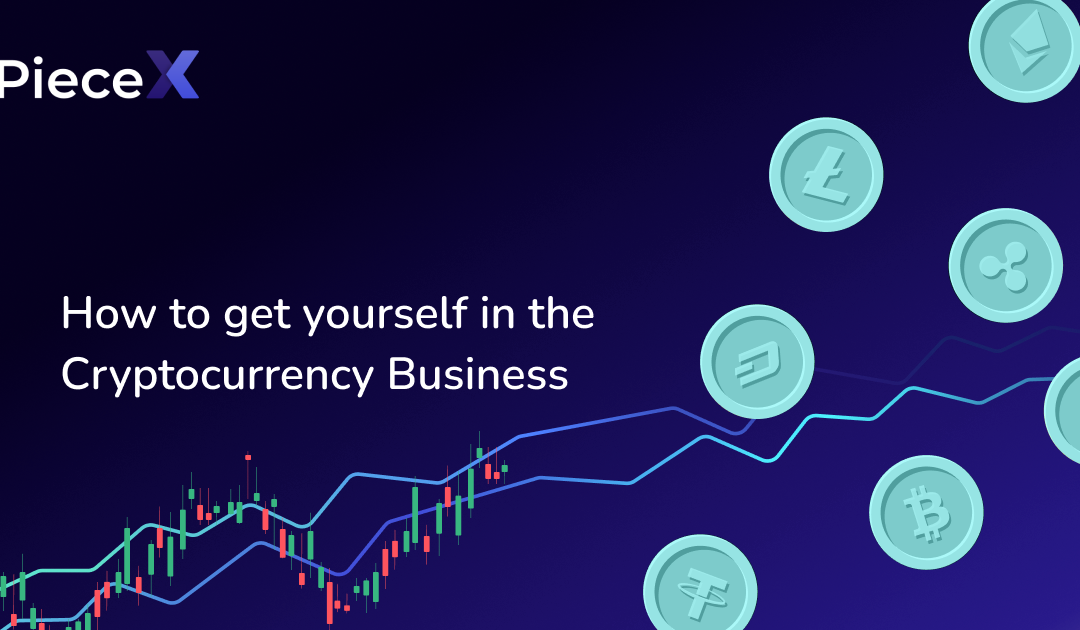

The Cryptocurrency world is often highly misunderstood. Most people look at bitcoin’s inflatable value and assume that this means that starting a Cryptocurrency business is an easy and quick method to make money.
Unfortunately, that is not true. Like any Tech Startup or Enterprise venture, getting into the Cryptocurrency business requires a great amount of planning, tech development, legal consideration and funding.
In this article, PieceX will take you on a quick tour on how to get yourself and your company in the Cryptocurrency business.
Study The Market
The first step to getting into the Cryptocurrency business is to study the market. Whether you are a Dev Startup creating your very own Crypto trading bot or you’re an Enterprise looking to build your own Crypto Exchange Software, the first important thing to do is to understand the Market.
There are many questions to be answered before you put your fingers on a line of code or start your Cryptocurrency business. What is the current Market value of the most famous currencies? What tools are currently heavily needed in the industry? Does your Solution offer liquidity?
If you have answers to those questions, you can begin working on starting your legitimate Cryptocurrency Business.
Legalize Your Venture
Due to the financial nature of cryptocurrency ventures, it is very important to work on legitimizing your cryptocurrency business from legal and governmental perspectives.
Though it differs from one country to another, each country has a clear system to govern the legalities of Cryptocurrency businesses. It is important to consult a lawyer and find out what licensing procedures are in your area before you actually start working on anything in order to protect your venture as well as your safety.
Secure Funding From VCs
If you’re a major corporation or enterprise, this part should mostly be quite simple as you will make sure to fund your cryptocurrency business yourself and not worry about acquiring funding from external sources.
However, if you are a tech startup, you may need to work on your presentation on how to attract VCs within the Crypto industry to support your software and help you get the capital you need to start developing your Cryptocurrency software.
If this proves to be difficult for a startup or costly for an enterprise, stick around and we’ll let you in on a good solution.
Focus On Developing Your Software
The most important step to get into the cryptocurrency business is to actually focus on your tech. Blockchain technology is often very complicated so it is very important not to neglect the tech aspect. No matter how many financial analysts and marketing experts your team has, if your tech is not your focal strength, then your business will fall off heavily.
Not just to develop the actual software, your tech team will be responsible for creating full on security systems as well as test your beta live.
This much work on a tech team can be too costly and time consuming, and that’s why the PieceX Marketplace offers a huge amount of Cryptocurrency Source Code to help you build your software. It is a good place to start if you don’t have the funding or if your Enterprise would like to save resources and receive high quality services before delving deeper into the Cryptocurrency Business.
For more information, make sure to read more in PieceX’s Knowledgebase blog!






